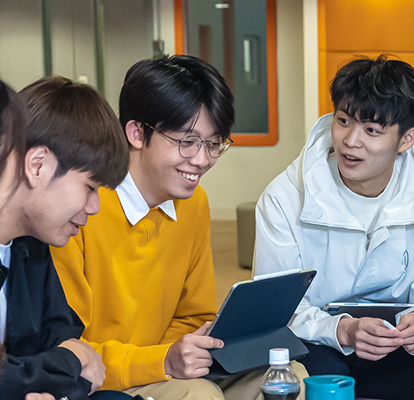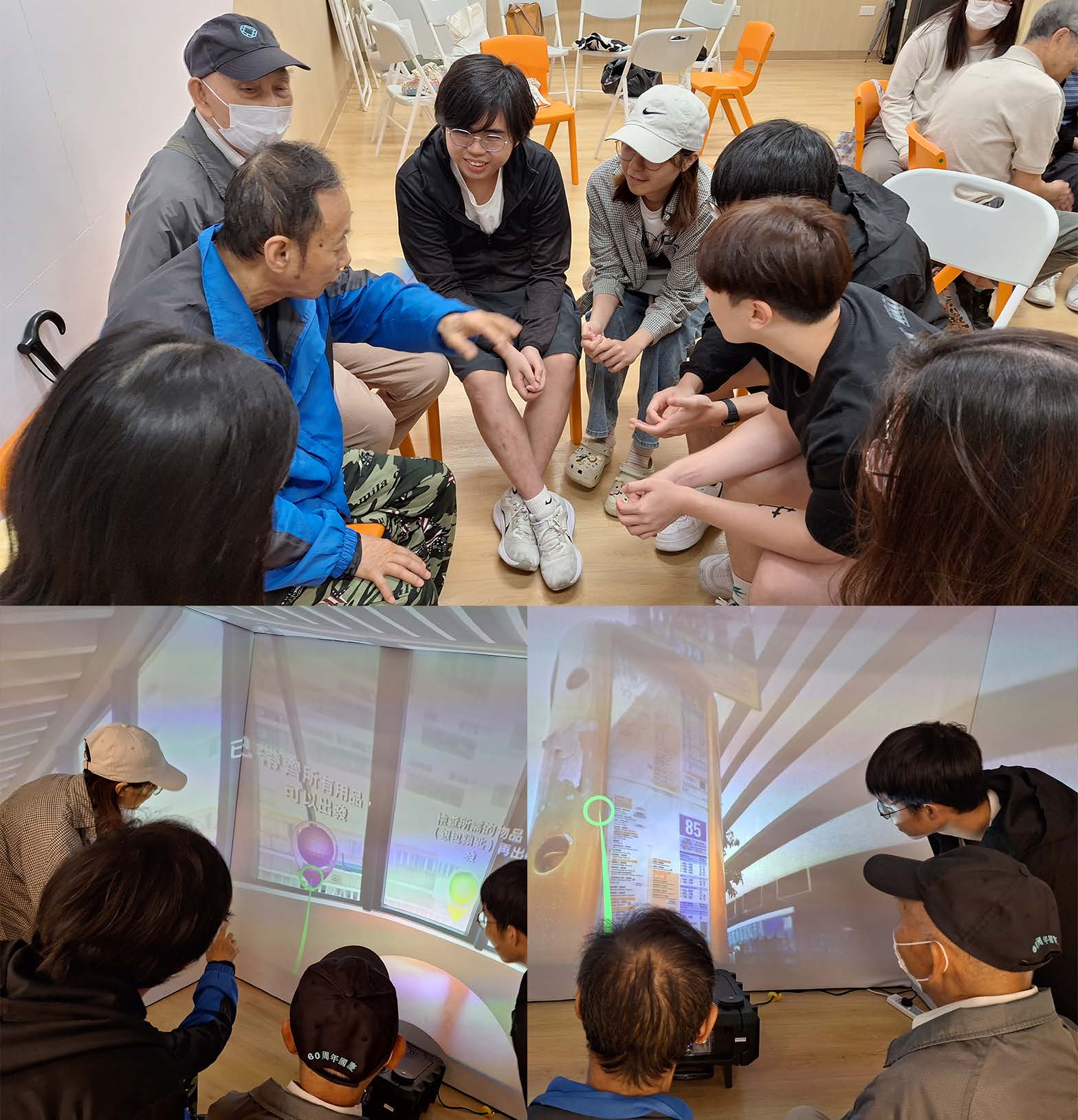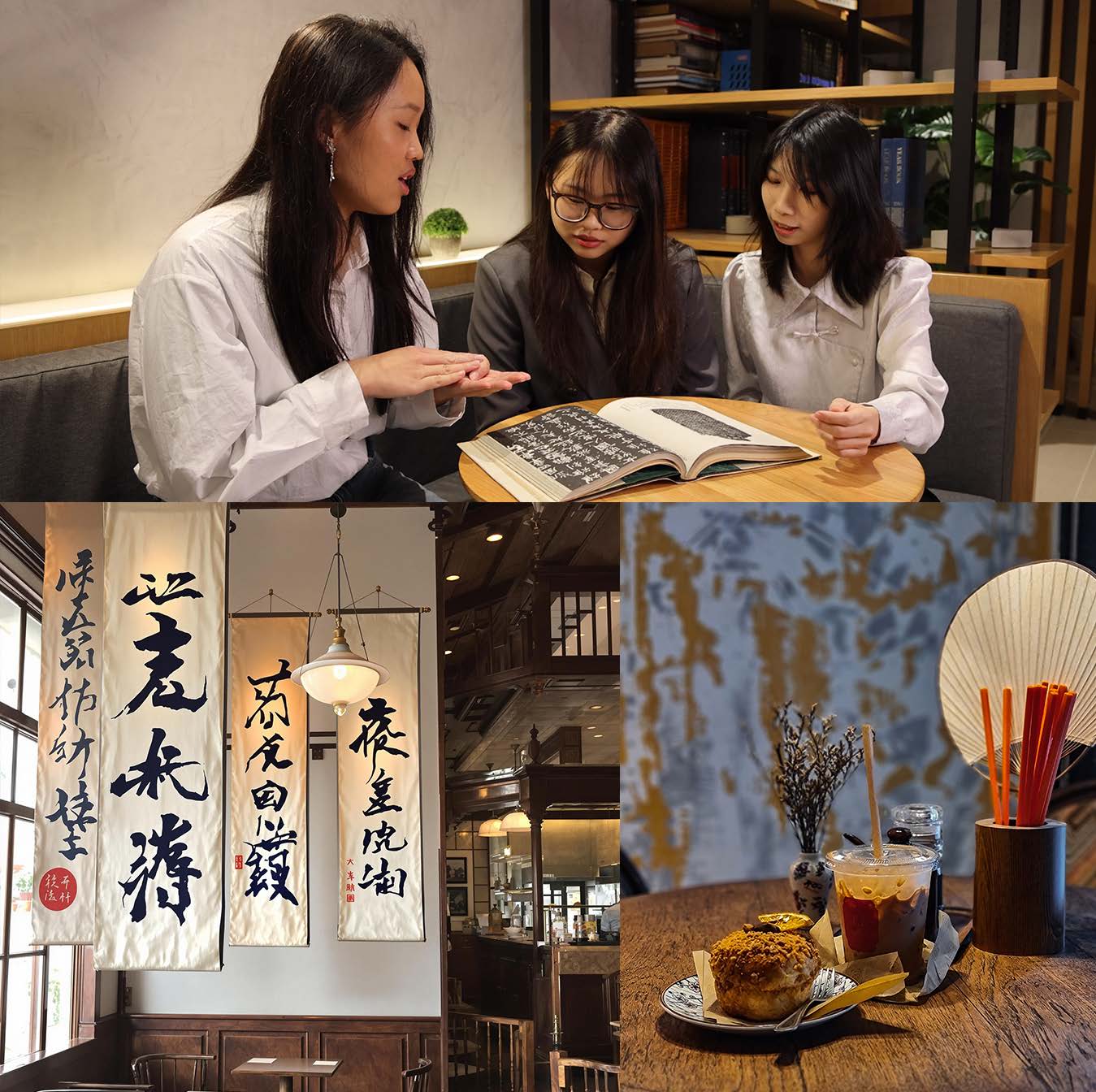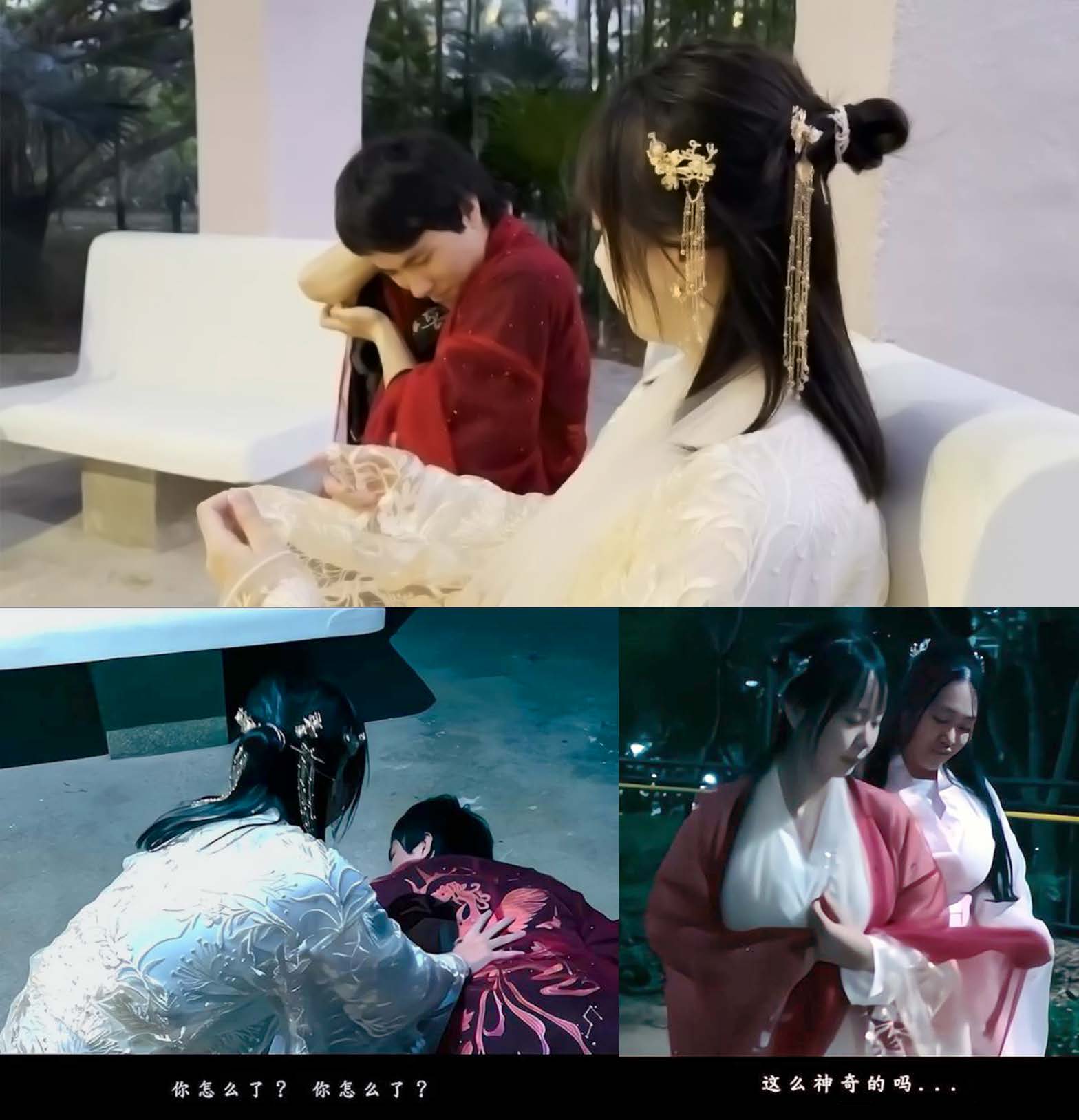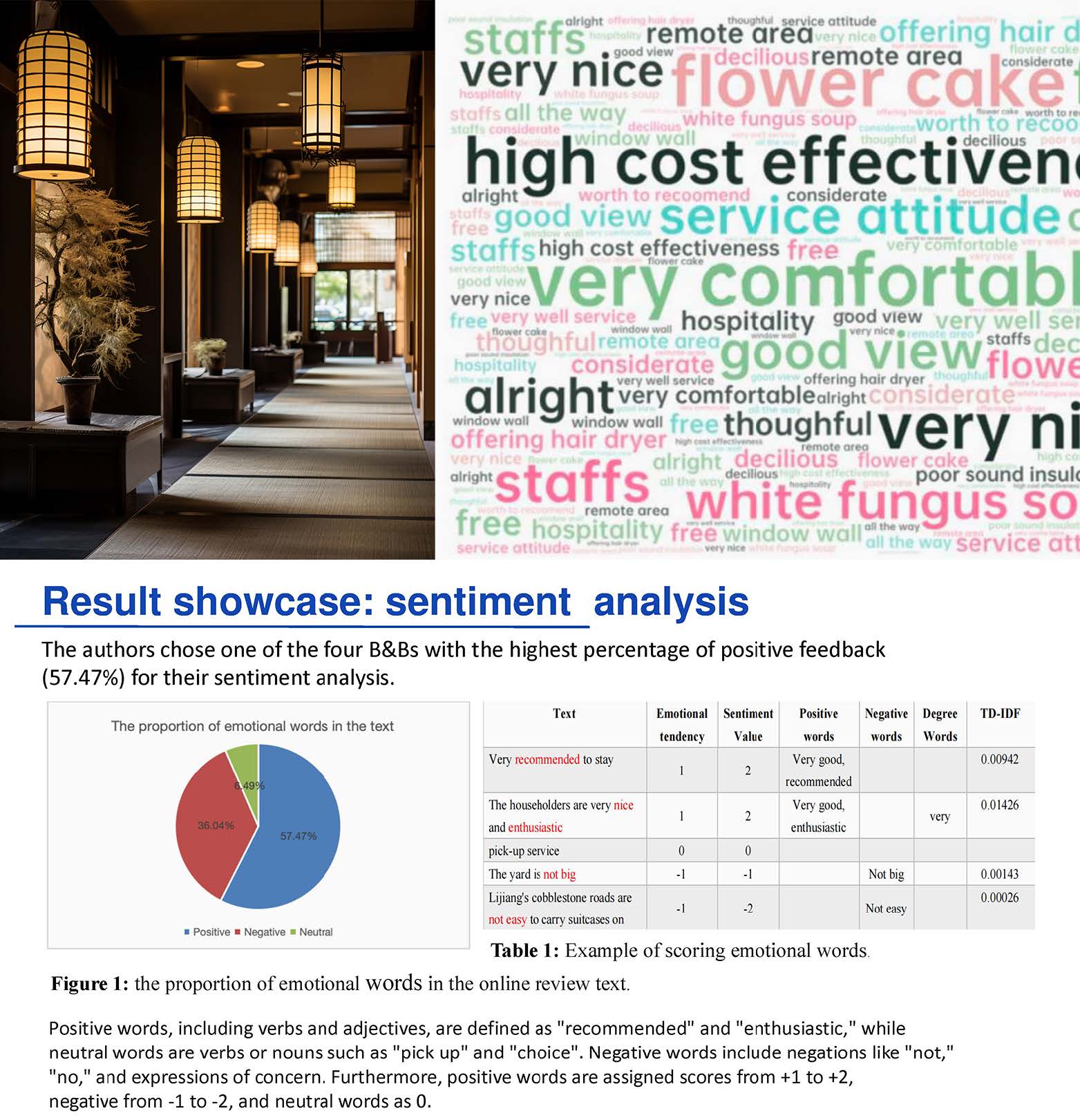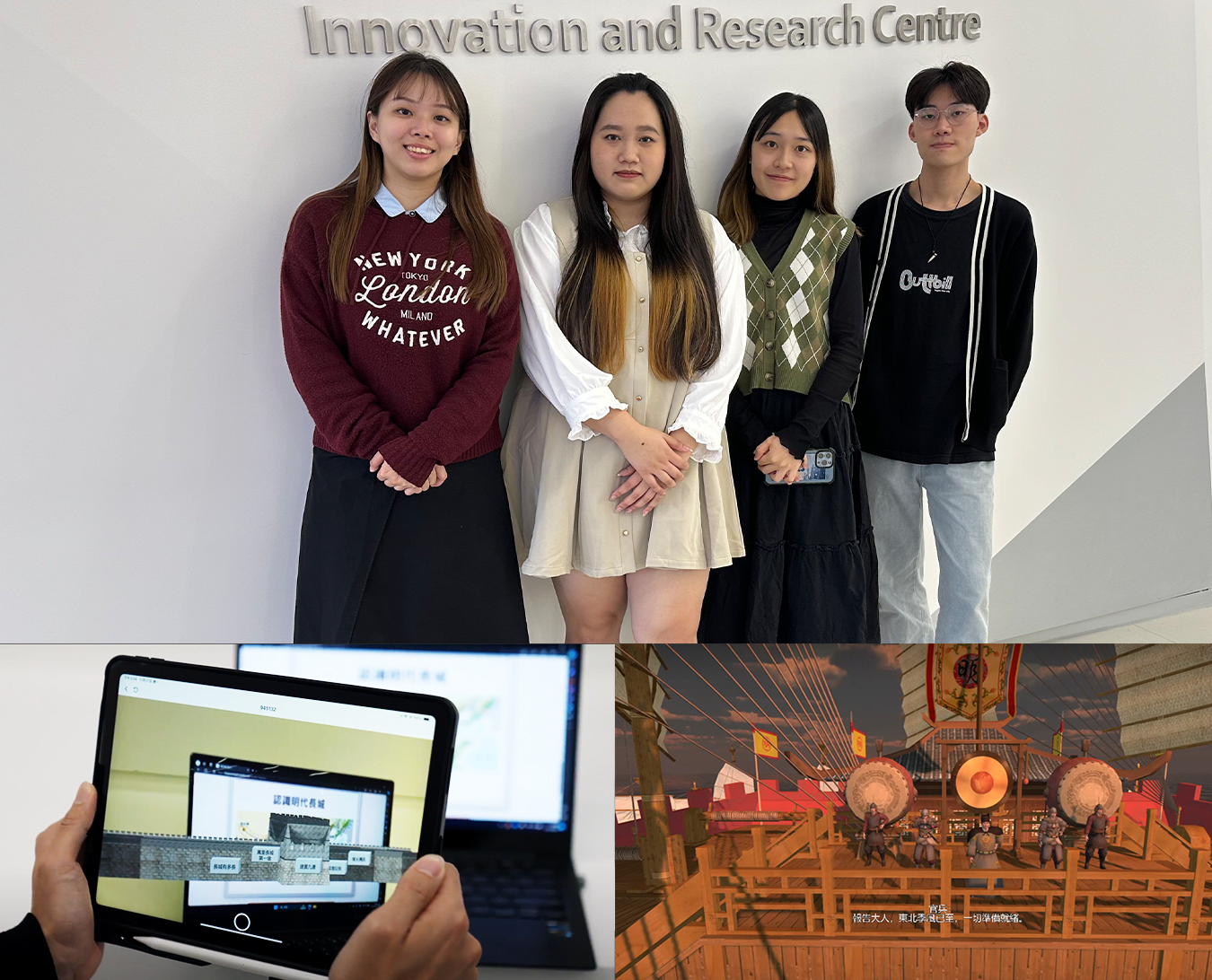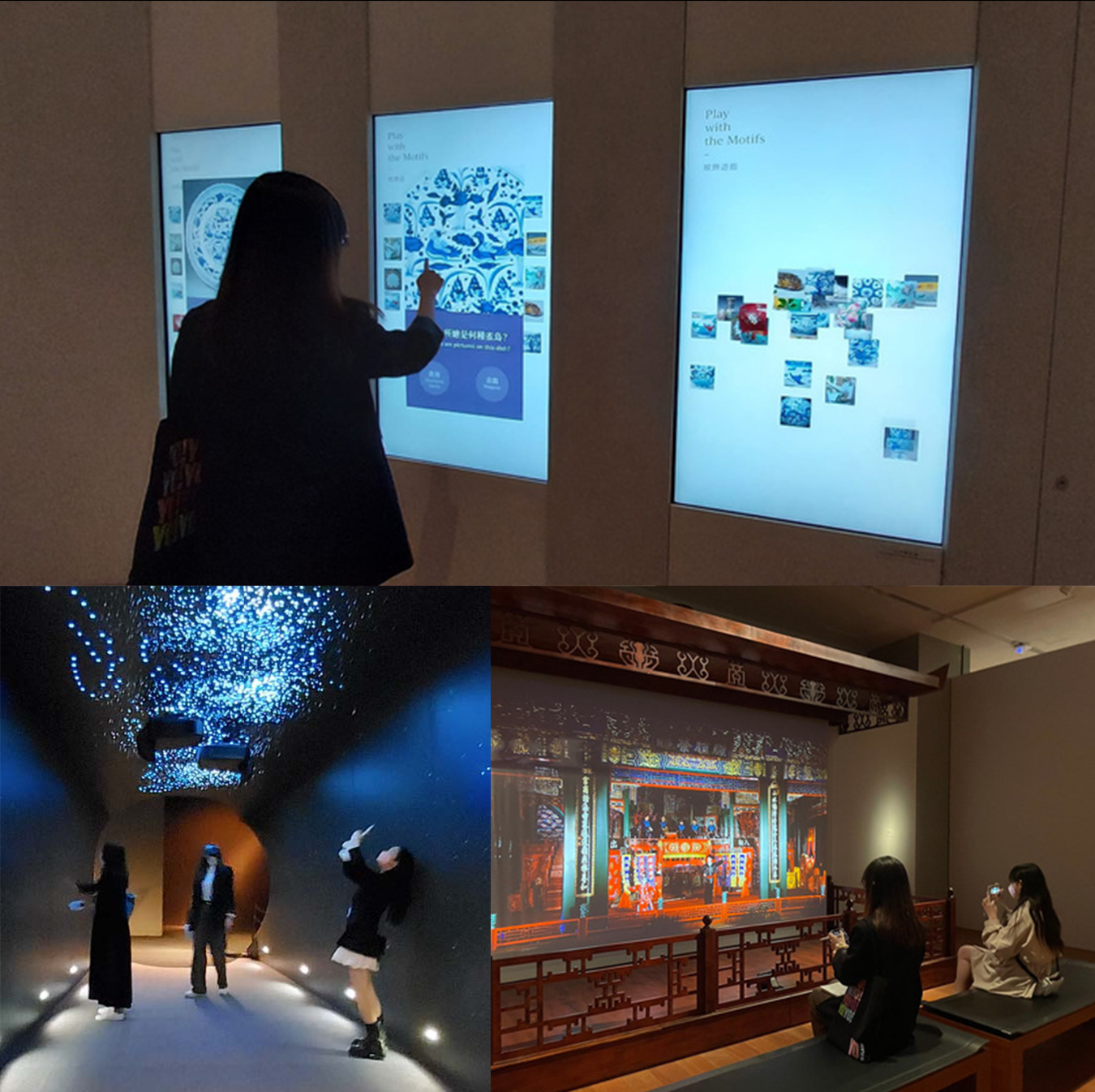
Student Project Award
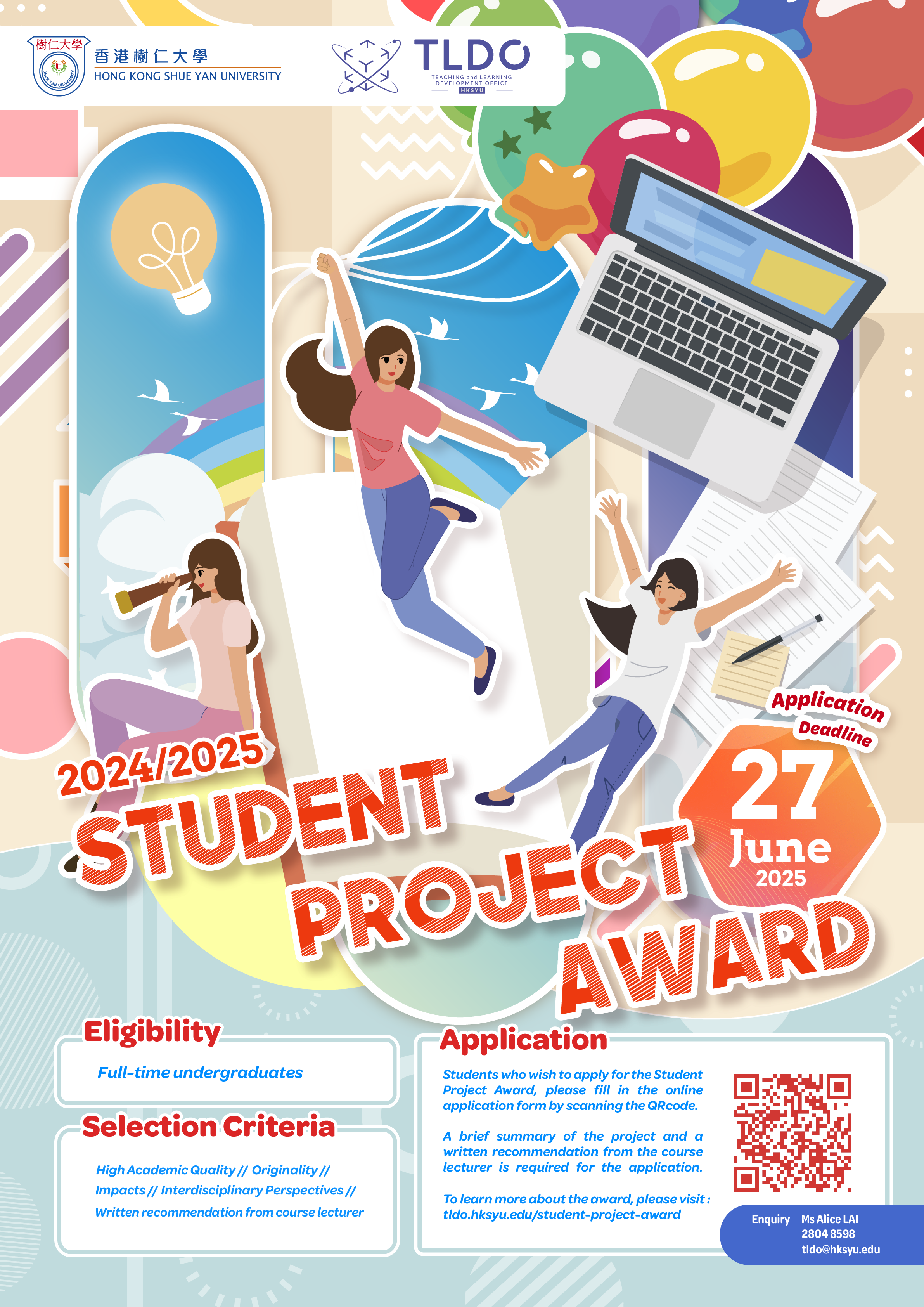
Objective
- The Student Project Award has several objectives, which include the recognition of academic excellence, the fostering of peer learning, collaboration, and community, the encouragement of innovation and creativity, and the promotion of active learning and project-based learning. The award aims to celebrate and showcase exceptional student achievements across diverse academic disciplines, promoting academic excellence and inspiring students to realize their full potential. Additionally, the award strives to cultivate a collaborative learning culture by encouraging students to collaborate on creative projects, building a sense of community and fostering peer learning. By promoting active learning and project-based learning, the award also aims to provide students with practical experience and to develop their critical thinking and problem-solving skills.
Eligibility
Full-time undergraduates in HKSYU
Selection Criteria
The selection criteria for the Student Project Award are:
1. Academic quality
- - Demonstrates an excellent and thorough understanding, as well as critical thinking of the theories, cases, or practical knowledge of the
selected topic - - Able to present the idea of the project effectively regardless of the medium of presentation
2. Originality
- - Demonstrates an excellent potential for discovery or impact in the field
- - Greatly extends previous work instead of repeating what other people have done (e.g., Addressing questions that are important but
unanswered in the field) - - Innovative content or creative modes of delivery
3. Impacts
- - Demonstrates exceptional theoretical (e.g., informs future development of theoretical models) or applied (e.g., inform daily practices
such as industrial arrangements) significance
4. Interdisciplinary perspectives
- - Exhibits interdisciplinary thinking by showing the ability to use knowledge of different disciplines to design the project or to interpret the
project’s outcomes from the perspectives of various disciplines
5. Written recommendation from course lecturer
- - A written recommendation from the course lecturer with comments on the various criteria is needed
.
2023/24 Student Project Award Winners
.
.
|
360 Video Plan and Activity Day for the Older Adults . Lee Ka Hei Calvin (Department of Social Work) Tam Suet Ching (Department of Social Work) Ho Wai Chong (Department of Social Work) Li Cheuk Wing (Department of Social Work) Liu Ho Wai (Department of Social Work) Cheung Hoi Nam (Department of Social Work) Chan Yuen Yiu (Department of Social Work) Cheuk Kam Chu (Department of Social Work) This project creates 360° video experiences for dementia care using community-based VR to recreate familiar daily routines. It uses Insta360 cameras and CAVE projection systems to build virtual environments of local settings, such as Siu Sai Wan’s markets, to trigger memory recall through interactive stories about family shopping and dining. Developed with social workers, the videos feature spatial audio and gamified choices that reflect real-world cognitive tasks, such as picking groceries or planning meals. Key features include adaptive projection mapping to ensure consistency across different dementia stages and gesture-based controls designed for limited mobility. The system enhances engagement with tactile floor vibrations that match market sounds and olfactory devices emitting cooking smells during virtual meals. By focusing on neighborhood landmarks, it supports spatial awareness and provides caregivers with data from eye-tracking heatmaps and response time metrics during guided sessions. |
|
|
.
.
.
|
Audio Production - Music and AI Technology . Tse Tze Yu, Swing (Department of Journalism and Communication) This project tests AI's ability to create music by comparing four approaches: human-only, AI-written lyrics with human music, human lyrics with AI music, and fully AI-generated songs. It uses voice cloning to transform demo vocals into celebrity voices, such as Bruno Mars. The project measures AI outputs against professional benchmarks for lyrical clarity, melodic complexity, and emotional impact. Notable features include simplified voice synthesis workflows that allow beginners to produce studio-quality vocal effects with minimal coding. By focusing on AI's independent songwriting rather than its supporting role, the project reveals limitations in creating verse-chorus structures and maintaining genre consistency. The findings provide music producers with practical guidance on using AI for quick prototyping while keeping human control over storytelling, offering a model for blending new audio AI tools into commercial music production. |
|
|
.
.
.
|
Chinese Calligraphy Themed Cafe . Zeng Taolin (Department of Business Administration) Su Yujun (Department of Business Administration) Cai Yabing (Department of Business Administration) This project outlines a business proposal for a cultural-blending café that promotes traditional Chinese calligraphy through interactive urban experiences. The café hosts rotating exhibitions of regional masters’ works alongside live calligraphy demonstrations, allowing visitors to observe techniques while enjoying drinks. Key features include an immersive design that combines hanging calligraphy scrolls with contemporary café aesthetics and hands-on workshops teaching basic calligraphy skills. A hybrid model enhances access with digital platforms offering virtual exhibitions and online courses. The initiative seeks to connect generations in cultural appreciation, particularly engaging younger audiences through multisensory activities. The plan demonstrates how to preserve cultural heritage through a mix of commercial and educational efforts, serving as a community arts hub and a model for adaptable cultural spaces in cities worldwide. |
|
|
.
2023/24 Student Project Award Finalist
.
|
Short Film Adapting Chinese Supernatural Stories . Huang Jing Yi (Department of Chinese Language and Literature) Lam Ka Wing (Department of Chinese Language and Literature) So Tsz Kin (Department of Chinese Language and Literature) Liu Shu Han (Department of Chinese Language and Literature) Kan Ruo Qi (Department of Chinese Language and Literature) Feng Yi Xiao (Department of Chinese Language and Literature) This project proposes a short film based on Pu Songling’s Painted Skin, reimagining the cautionary ghost tale as a meditation on morality versus desire. The story centers on a cursed "skin" artifact, once tied to a mystical fox demon and now portrayed as a sentient object that intensifies human desires while decaying its wearers’ bodies. The narrative shifts the villain from a malevolent spirit to a morally complex shapeshifter, following the skin’s curse as it passes through three protagonists across generations. The film features symbolic makeup inspired by fox totems from the Classic of Mountains and Seas, blended with modern anime-style iridescent facial patterns to depict the demon’s dual nature. Instead of the original’s clear moral stance, this adaptation raises open-ended questions about whether material desires outweigh ethical limits. By weaving Daoist ideas of cosmic balance into psychological horror, the project makes the classic zhiguai tale resonate with today’s audiences. |
|
|
.
|
Same News, Different Formats: Social Media Strategies of News Organizations Across Different Digital Platforms in Hong Kong . Wong Wing Chi (Department of Journalism and Communication) This project examines how Hong Kong news organisations boost social media engagement on platforms like Facebook and Instagram. It combines interviews with social media editors and analysis of over 2,000 posts to reveal content strategy patterns. The findings challenge assumptions about visual content, showing that videos drive more shares but receive fewer likes. Sports news and hard news affecting daily life lead in audience interaction. The study highlights three editorial focuses: maintaining journalistic standards, choosing market-driven content, and adapting to platform algorithms. It uncovers gaps between traditional engagement theories and real-world results, especially for visual posts. The research offers practical tips for newsrooms to improve social media strategies and sheds light on how digital platforms influence news distribution, exposing tensions between editorial values and algorithmic demands in today’s journalism. |
|
|
.
|
Determinants of Pricing for B&B in Yunnan: An Online Reviews Analysis . Dong Meitong (Department of Economics and Finance) This project studies price changes for B&Bs in Yunnan province—covering Dali, Kunming, Xishuangbanna, and Lijiang—using data from Ctrip.com. Crawler software collected the data, while Excel sentiment analysis assigned values from -1 to +2 to keywords, and word clouds identified pricing factors. The study found that creative giveaways maintain prices after peak seasons, responsive service boosts competitiveness, and positive reviews drive demand-driven price spikes. Unlike hotel studies that focus on financial metrics, this research emphasizes B&Bs’ customer experience factors, such as “enthusiastic service” and “quiet environment.” Methods included using VOSviewer to visualize 500 journal abstracts for the literature review and TF-IDF weighting to assess word importance. The findings highlight how non-financial factors, especially guest-review keywords, influence pricing strategies in Yunnan’s expanding B&B market during tourism recovery. |
|
|
.
2022/23 Student Project Award Winners
.
.
.
|
The Real Surrealism Masterpiece: Salvador Dalí versus the Artificial Intelligence . Chan Ying Yuet (Department of Chinese Language and Literature) Cheung Hoi Yi (Department of Chinese Language and Literature) Chan Tsz Hin (Department of Counselling and Psychology) This project designed an exhibition that includes both Salvador Dalí's original artworks and artworks generated by artificial intelligence. Dali’s works and Al-generated works were mixed and randomly placed on site. The aim of the exhibition is to increase public understanding of surrealist art, raise public awareness of surrealist art, and provoke critical reflection on the impact of AI on artistic practice. |
|
|
.
|
Zheng He's Voyages to the West and the Ming Dynasty Defense Construction . Fu Wing Yu (Department of History) Lin Jian Ye (Department of History) Wong Hoi Yan (Department of History) Lee Chung Ming (Department of History) This project aims to enhance secondary school students' interest in learning Chinese History through the use of open educational resources (OER) in the form of a website. This project stands out with its integration of immersive technologies such as AR and VR. With these technologies, users can learn about the Great Wall of the Ming Dynasty, one of the most important defence constructions in the Ming Dynasty, explore Zheng He's voyages, and discover the routes Zheng He has traveled. |
|
|
.
|
Adoption and Use of Digital Technologies in Museums: A Case Study of Hong Kong Palace Museum . Ma Tsz Lui (Department of History) Ning Chao (Department of Accounting) Wu Yihan (Department of Accounting) Chen Jing (Department of Accounting) Wang Jiani (Department of Accounting) The project reflected on the adoption and use of digital technologies in museums through a case study of the Hong Kong Palace Museum. Quantitative analysis was used to assess the attractiveness of all digital devices in eight galleries. The study helps to assess the achievements and shortcomings of different digital technologies in the Hong Kong Palace Museum. |
|
|

Application
Deadline for application in 2024/25 academic year: 27th June,2025
2024/25 SPA Online Application Form

